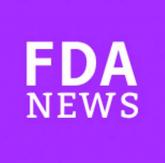Conference Coverage


The Food and Drug Administration has approved flibanserin as the first drug treatment for acquired, generalized hypoactive sexual desire disorder in premenopausal women. The drug – marketed as Addyi – is expected to be available by Oct. 17.
Conditions of the drug’s third – and successful – bid for approval, however, include a risk evaluation and mitigation strategy (REMS), post-marketing research, and a boxed warning to highlight the risk of severe hypotension and syncope for some patients.
The decision adheres to the recommendations of two FDA advisory panels – the Bone, Reproductive and Urologic Drugs Advisory Committee and the Drug Safety and Risk Management Advisory Committee – which met jointly on June 4 and voted 18-6 for approval of the non-hormonal, centrally-acting drug. The panels advised that additional measures beyond labeling language be put in place to address concerns about serious adverse events associated with flibanserin. Unpredictable episodes of syncope have been reported, and significant interactions with alcohol can worsen the hypotension and syncope flibanserin can cause.
Flibanserin is a mixed agonist/antagonist for serotonin and dopamine receptors. It is meant to be taken orally at bedtime on a chronic basis; the dose is 100mg. Previous applications for approval in 2009 by then-manufacturer Boehringer Ingelheim, and in 2013 by current manufacturer Sprout Pharmaceuticals, were denied.
The REMS requires that prescribers of flibanserin complete training about the risks of severe hypotension and syncope when the drug is taken with alcohol, and that a patient-provider agreement form about these risks be signed. Pharmacies must also certify with the REMS program.
The black box warning will state that the use of alcohol is contraindicated when taking flibanserin, that it should not be taken with moderate or strong CYP3A4 inhibitors, and that it is contraindicated for those with liver impairment. The FDA is also requiring more study of flibanserin and alcohol in women.
In a series of three phase III clinical trials in North America, premenopausal women who met the DSM-IV diagnostic criteria for hypoactive sexual desire disorder (HSDD) and who were in a stable monogamous relationship took flibanserin or placebo. Of the more than 1,200 women in each study arm, those taking flibanserin had a statistically significant improvement in the number of satisfying sexual events (SSEs) per month, and also showed a significant increase in sexual desire, though overall effect sizes were modest. Women on placebo experienced an increase of 1.5 SSEs per month, compared to 2.5 SSEs per month in those taking flibanserin.
The primary endpoint for sexual desire in the first two studies was a response on an electronic diary reporting the highest level of desire over the last 24 hours. For the final study, the primary desire endpoint was the desire domain of the Female Sexual Function Index, which asked respondents to reflect on their desire over the previous 28 days. In the third clinical trial, women taking flibanserin showed a significantly greater increase in desire than those taking placebo.
Side effects and adverse events associated with flibanserin included drowsiness, hypotension, and syncope. Since the drug is metabolized through the CYP3A4 system, potential for drug-drug and drug-alcohol interaction exists.
Dr. Walid Gellad, co-director of the Center for Pharmaceutical Policy and Prescribing at the University of Pittsburgh, was on the FDA panel that voted in favor of flibanserin’s approval. In an interview, he explained that he attempted to balance the need for the medication against both the very real safety concerns and the relatively modest effect size.
As flibanserin hits the market, he said, “there is no doubt that the adverse events are going to be worse in real life than we saw in the trials.” Off-label use and drinking while taking the drug in spite of warnings are the likely contributors, he said.
On the other hand, “biology is important,” said Deborah Arrindell, vice president for health policy for the American Sexual Health Association, a supporter of Even the Score, a coalition of groups that includes Sprout Pharmaceuticals and that has pushed for approval of the drug. Having a medical treatment for women with HSDD, she said, represents real progress.
“We recognize that medical and biological factors are at play in human sexuality,” she said.
Women who have concerns about their level of sexual desire will be able to work with their providers to determine if flibanserin is a medication that could help them. Approval of flibanserin, Ms. Arrindell said, signals further acknowledgement that “women have a right to sexual pleasure, and that sexual health is part of one’s overall health and well-being.”


Without the option of recommending physician certification as a condition for flibanserin approval, the Food and Drug Administration advisory...
